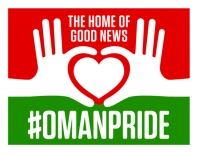
Mohammad Kunhi, locally renowned for making herbal medicines, came to Oman 27 years ago. The middle-aged man from Kerala started as an apprentice to Haji Murad, selling herbal medicines at a shop in Muttrah Souq. Kunhi caters mostly to Omanis, Asians, and Africans, but he believes that people in general prefer traditional herbal medicines, as they are safe and have no side effects.
“We receive some 30 to 35 customers or patients every day. Most of the common illnesses that people come to us for are (high or low) blood pressure, diabetes, rheumatism, and strokes,” said Kunhi.
Kunhi warned that even though his medicines are safe, certain kinds of food or spices should be avoided while taking them.
“Following a simple dietary regime is just as important as taking these traditional medicines at the prescribed times in the correct dosage. The course varies for each medicine,” added Kunhi. Talking about the different medications he prepares, Kunhi explained how eight types of essential leaves are mixed and boiled together at a high temperature to prepare a medicine for diabetes.
“It is important to remember that these concoctions do not cure the condition but reduce their severity, as in the case of diabetes, where the patient’s high level of sugar is controlled,” said Kunhi. Kunhi uses only natural ingredients to prepare the herbal medications. For instance, Arqi Zamda, a white pebble-like substance, is boiled until it is completely dissolved; it is used for treating gastric problems.
For hypertension patients, Kunhi uses leaves that have been specially prepared. For paralysis and stroke, which are most common among the elderly, Ishaab Mat-hun, a powdered herb, is mixed and heated with seven oils. Meanwhile, a black seed, Habba Sawda, mixed with pure honey, is considered beneficial for cancer patients.
“All these are mentioned in the Arabic book of medicine,” stated Kunhi. Kunhi also has medicines for rheumatism, diarrhoea, liver disease, and heart disease. Some of the other medicines for various ailments are Murat or Manimani, Shubir, Luban Mur, and Arwa (Arabic names).
To prepare these medicines, traditional utensils are used and strictly monitored, according to Kunhi. A majmar, for instance, is a steel dish with holes at the bottom and a long handle and is used for burning coals; it can be heated on a stove or hot plate.
A moka is a vessel used for pounding solid substances into a powdered compound, and the Sufria mal turab, made of clay, is used for cooking, boiling, and heating. Mohammad Kunhi, who is now well trained in making herbal medicines, takes pleasure in the fact that despite advancements in modern medicine, people still have faith in natural medicines.
—[email protected]